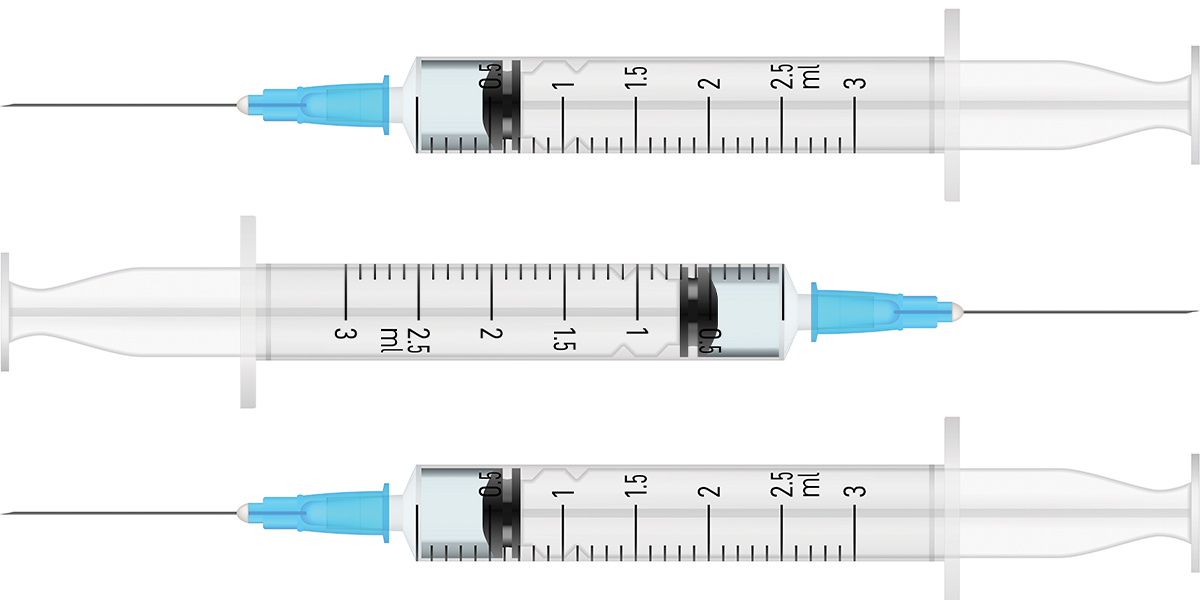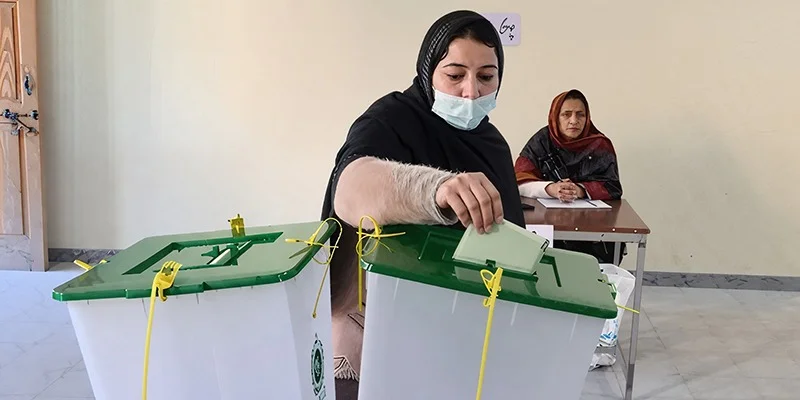KARACHI: As per the directives of the ministry of health, the healthcare providers will be using auto-disable (AD) disposable syringes instead of the ordinary ones with an aim to make injection practices safer for patients and healthcare workers (HCWs), besides adopting preventive measures with regard to the injection-related transmission of viruses, particularly HIV/AIDS, hepatitis B and C.
The injections are invasive procedures and are administered in high frequency. Therefore, meeting minimum safety standards is imperative as a means of protecting against the transmission of diseases.
Pakistan has one of the highest prevalence of hepatitis B and C cases in the world. According to the World Health Organisation (WHO), in Pakistan the high rate of repeated usage of syringes during therapeutic injections has led to a national prevalence of hepatitis C of 4.8 per cent, with some districts recording as high as 12pc, and has also contributed to at least one community outbreak of HIV infection. Earlier, the WHO had in 2019 held the repeated usage of the same syringe responsible for the spread of HIV/AIDS in Ratodero, Sindh.
Therefore, in order to avoid any such situation in future, the health ministry has directed the healthcare providers to use the AD disposable syringes as an alternative to traditional syringes. The deadline set for importers was March 31, 2021 while for the local manufacturers it was July 1, 2021. The sale of conventional syringes has been banned since December 1, 2021.
Prof Dr Rafiq Khanani, president Infection Control Society of Pakistan (ICSP) said that ‘AD Syringe Awareness Programme (ASAP)’ has been started by the society from Karachi on January 1, 2022 under the slogan ‘One syringe only once’.
At a recent Senate session, the ministry of national health services stated that the number of HIV/AIDS patients in Pakistan has sharply increased in comparison with other Asian countries. The ministry mentioned that the main cause of the spread of the fatal disease was the practice of reusing syringes and the transfusion of unauthorised blood bags.
Dr Ershad Hussain Kazmi, additional director Communicable Disease Control (HIV/AIDS) and deputy DG CDC Wing at the Directorate General Health Services, Sindh, agreed that the spread of deadly viruses, particularly HIV/AIDS, hepatitis B and C are caused by injection-related transmission. But he contested the statement of the ministry of national health services regarding massive increase in the number of AIDS patients compared to other Asian countries. “According to the recent figure of UNAIDS, Pakistan has 0.01pc prevalence in the general population”.
Dr Kazmi suggested that the problem of unsafe syringes and needles needs to be addressed in a comprehensive manner with requisite technical input from the public health experts and in partnership with industry and healthcare providers. He said that Pakistan is a heavily legislated country but the problem lies in implementation. The respective provincial healthcare authorities have a role to ensure rollout of AD syringes in the therapeutic sector and with the injection manufacturing industry to make certain adequate production to meet the needs at a feasible cost.
The Sindh Regulation and Control of Disposable Syringe Bill, 2010 had been passed by the Sindh Assembly on Jan 12, 2011 and was given assent by the Sindh governor on February 17, 2011 which states: “no person shall manufacture, sell or use disposable syringes other than auto lock, auto destruct or auto break for injection, drawing of blood and other purposes”.
Furthermore, it states that “all directors, managers, secretaries or agents shall follow this Act and those contravening will be punished with imprisonment for a term that may extend to two years or fine which may extend to five hundred thousand rupees or with both”. Despite the legislation regulating the use of AD syringes, the other syringes are still being used widely.
Pakistan Medical Association (PMA) Centre general secretary Dr Qaiser Sajjad has said the AD Syringe Awareness Programme is the need of the hour and full use of auto-disposable syringes across the country will improve the overall health situation. However, efforts to amend the act will be meaningless if the law is not implemented and accountability for ensuring implementation is not enforced.
Chief executive officer of GHSI (Global Health Strategists and Implementers), a consulting company in Pakistan and a member of the WHO Roster of Experts in Epidemiology and Surveillance, Dr Rana Jawad lauded the government’s move. He said the move would help control diseases like hepatitis and AIDS.
Furthermore, he said the biggest challenge in ensuring the use of AD syringes would be in the form of their adequate supply. “As per my assessment, previously the issue of supply of AD syringes was a hurdle in the implementation of law.
This was a great initiative by the Sindh government which was not followed by [the] whole country due to the differences among provincial governments.” He also highlighted the issue of high frequency of injections by doctors.
“I have investigated several outbreaks of epidemics and diseases. I was also a part of the investigation team in the Ratodero case. What we found after the investigation was that excessive use of injections was the major factor of the outbreak of epidemics. It is [the] doctor’s responsibility to discourage this practice and educate people about the disadvantages of the unnecessary usage of injections,” he told Bol News.




















